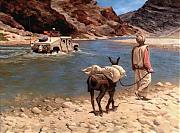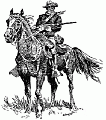From Ken:
Part of me wonders about that though - how involved do we want the policy makers involved in strategic direction?
If the military had prepared for only the most dangerous threat vs. the most likely, are there other reason besides defense industry lobbyist and competition for program $$s?
Could it have something to do with a lack of coherent foreign policy that is reflective of 21st century threats? How do we translate and ensure that the guidance is codified in the QDR and various strategic documents?
Without the Executive and Legislative branches getting involved, are we letting them off the hook for their responsibility in the process?
I heard today that services are going to have to start laying out roles and missions to OSD - that would seem to me to be the opportunity for an ugly dialouge, but one we need to have in order to move forward. I'd also say that left to ourselves, large scale change (such as how we define our mission) will happen more slowly and more reluctantly as we weigh risk against existing documents and our interpretation of them.
This is not to say that we should be told "how", but I do think we need a better left and right on "what" that sets us up to be resourced, provides direction for DOTLMPF issues and otherwise supported.
Good article in Foreign Affairs
here entitled Grand Strategy for a Divided America by Charles A. Kupchan and Peter L. Trubowitz
From Foreign Affairs, July/August 2007 that speaks to the quest for a 21st Century American foreign policy.
) which I frequently use as a cover for my irritability -- your bovine comment is, of course, right on the money and led to said irritability; I walked outside for a bit before I came in to write my short missive.

















Bookmarks